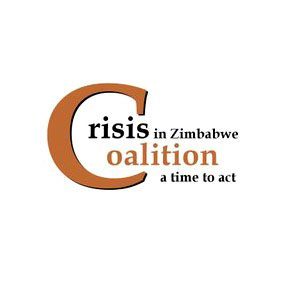
In the 1960s in the then Rhodesia, when the Smith regime was taken head on by the liberation movement forces, a number of repressive laws were passed in order to suppress the voice of the majority, the black people. As a result of this, music began to take a new form and content as musicians realised their duty to speak for the voiceless.
REPORT BY CRISIS COALITION Art is the domain of the personal and the creative imagination, and it is a space where artists, writers, poets and playwrights operate at the interface of culture and politics, sometimes exposing the perhaps less visible and less measurable, yet vital ways in which artists continue to contest culturally specific notions of politics.
The arts — painting and sculpture, music and dance, architecture and design, photography and film, drama and literature — have transformed over time into a tool of social empowerment. Zanu PF, after having neglected this vehicle for some time, especially after independence, came back guns blazing after the 2000 draft constitution referendum, through a well-orchestrated arts campaign led by the then Minister of Information, Professor Jonathan Moyo.
By both monopolising and abusing the state media, the so-called “patriotic history” agenda has been solidly backed by a profound cultural nationalist project where art and culture have been cynically exploited to popularise its otherwise false “patriotic history”.
The censorship of protest art by the Zimbabwean government is used to expose what happens to artists when their work dares to challenge Zanu PF’s so-called patriotic history. This follows the recent Board of Censorship’s ban of the play No Voice No Choice written by prominent theatre practitioner, Tafadzwa Muzondo, alleging that it was “inciting and against the spirit of national healing and reconciliation”.
Below are some examples of trends of harassment of protest artists: l In November 2011, the Book Café was shut down after state security agencies had serious problems with artistic activities taking place at the venue.
- Ugandan released after spending 3 weeks in detention
Keep Reading
- In March 2011, Bulawayo police banned Rooftop Promotions from staging a play entitled Rituals, which focuses on political violence. Rituals, directed and produced by Daves Guzha, is a story told in panoramic fashion chronicling how community-initiated cultural solutions meet with serious challenges which either prevent their conclusive enactment or achievement of the desired results.
- In March 2011, the police banned a Zimrights pictorial production entitled Reflections. Reflections is a collection of photos of innocent Zimbabwean people who were brutalised by political violence during the period 2007-2008.
- In December 2010, Harare police arrested protest musician Farai Munro, popularly known as Cde Fatso for filming a music video along a railway track. Cde Fatso, has in the past been harassed by the police and state security agents for his politically-loaded music.
- On March 26 2010, Owen Maseko was arrested for showcasing an exhibition of paintings, focusing primarily on the Gukurahundi era, while it also challenged Zanu PF’s political oppression in recent years.
All the above mentioned cases are a clear illustration of what happens when “art” and “freedom of expression” come together to challenge Zanu PF’s “Patriotic History” project. It reveals how the rule of law in Zimbabwe has been crafted and subverted to support Zanu PF party’s ideological priorities. It is a point of intense concern that these bizarre censorship instructions continue to be issued under the Inclusive government which is guided by the Global Political Agreement (GPA) signed on this day, September 15 in 2008 which states that principals shall uphold the importance of the right to “Freedom of Expression and Communication” Article XIX.











